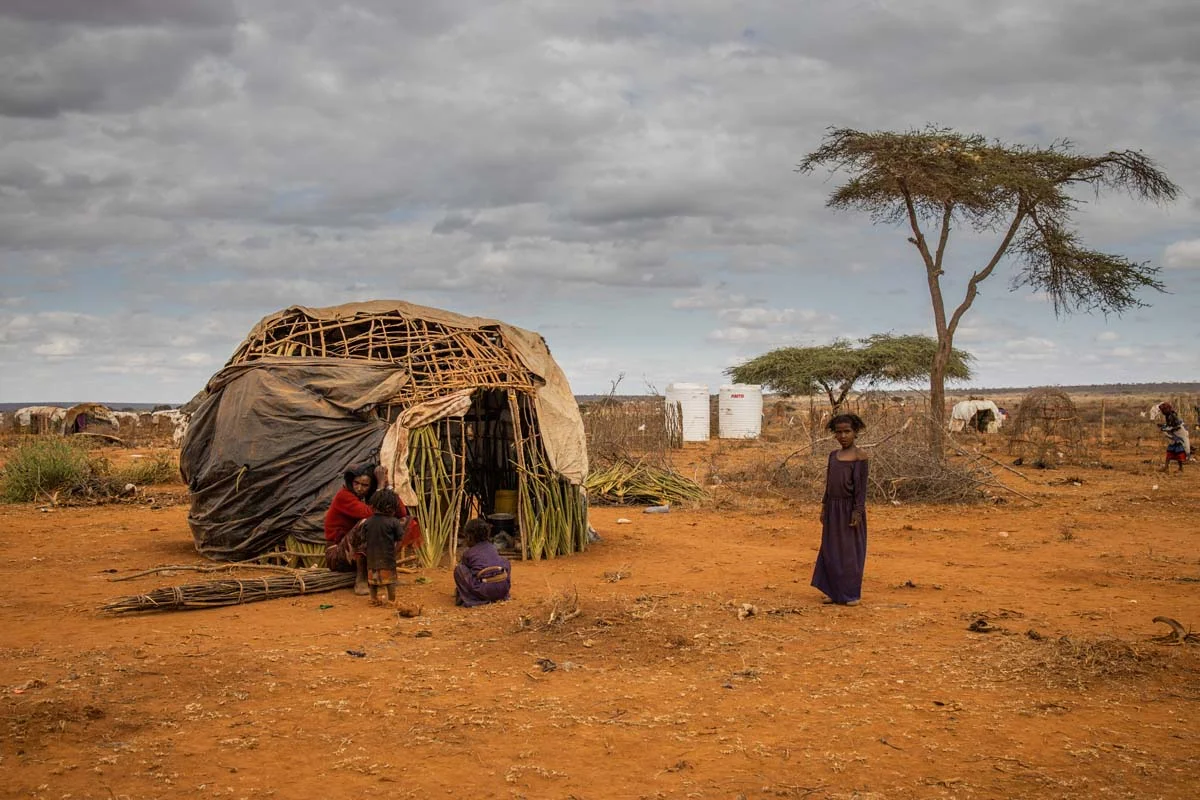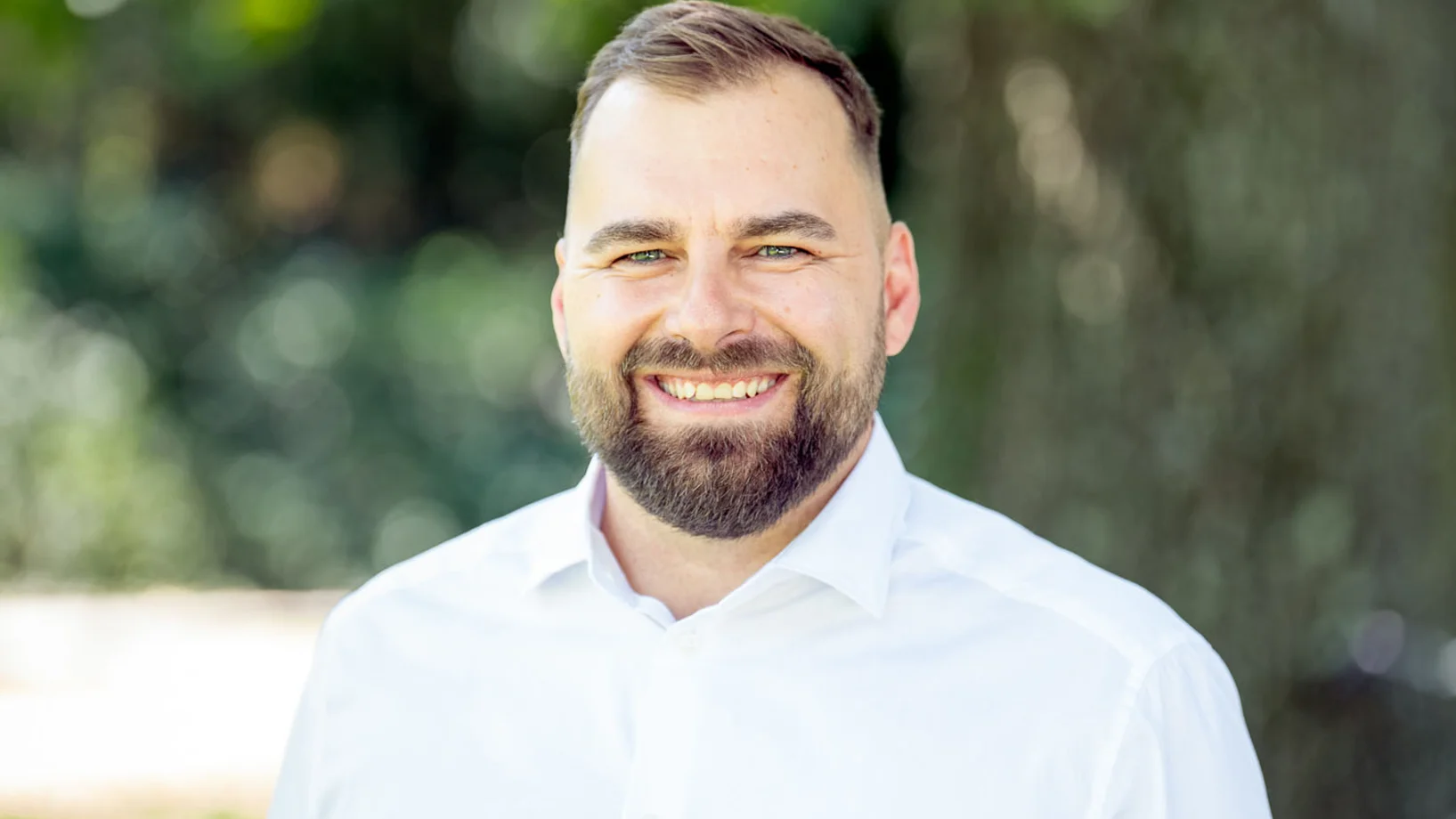Families need further emergency assistance
Zurich/Borena, October 4th, 2022 - Every morning they looked up to the sky - and were disappointed: Since mid-September, the climate refugees in their camps in Borena have been eagerly waiting for rainfall. So far in vain: It looks as if the fifth rainy season in a row will not come. It has hardly rained in the region of southern Ethiopia for around two years. Further emergency aid for the shepherd families is urgently needed to avoid famine.
The rainy season in the Horn of Africa from March to May 2022 was the driest since scientific measurements began seventy years ago. There are signs that this is a result of global climate change. The extreme dry seasons are becoming more frequent and getting worse: in the 2010/2011 drought there were two weak rainy seasons, and in the 2016/2017 drought there were even three weak rainy seasons. As of September 2020, there were four rainy seasons that failed. According to the UN organization OCHA, the latest weather forecasts indicate that the current season until December is “more likely to be below average and thus the fifth rainy season in a row will not occur”.
“This means that poor families in Africa, who contribute next to nothing to climate change, are paying our bill,” says Kelsang Kone, managing director of the Swiss aid organization Menschen für Menschen. “We owe our prosperity to industrialization and thus to the burning of coal, oil and gas.” In Switzerland, CO2 emissions per capita are currently 3.74 tons per year. In Ethiopia, each resident produces only 130 kilograms of CO2 per year - around thirty times less.
Many pastoral families whose existence is threatened by drought when watercourses dry up and pastures wither live in the south and southeast of Ethiopia: According to the OCHA, over three and a half million cattle have starved and died of thirst in Ethiopia so far.
Desperation in families
“Our cattle died,” reports shepherdess Galmo Hulfae, 28, in the refugee camp near the Horbate settlement. «We experienced a lot of despair. My husband became mentally ill and aggressive. He often wanders around aimlessly, talking to himself." She has to take care of her family alone. But in Horbate in the Borena region there is no way to make money. Without emergency help from outside, daughter Bati, 2, and son Gelgalo, 7, would starve.
“That’s why in July we started distributing basic foodstuffs to pastoral families who had lost their livestock,” reports Kelsang Kone. “Now that the current rainy season is apparently weak and again brings no relief for the people, we have to continue the emergency aid.” 4,539 climate refugees will receive additional monthly survival packages with flour, cooking oil and soaps by the end of the year.
One meal a day
The effects of drought are already severe for Ethiopia. Typically, pastoralist families make a living from selling livestock. If their animals are dead, they cannot buy basic foodstuffs. Small farmers face crop failures. According to OCHA, 2.2 million children are already acutely malnourished.
The shepherd families are leaving their pastures and gathering in camps in the hope of water and food: So far, around 596,000 people in Ethiopia have become climate refugees.
Day laborers and small farmers are becoming poorer due to the drought and they no longer have money for school supplies. As a result, more than 401,000 children in Ethiopia have dropped out of school.
The situation for seniors is also unbearable. In a desperate search for pasture, parents move ever further across the savannahs. Meanwhile, the grandparents have to look after the grandchildren - and go without food for them. According to a recent survey, over half of them only eat one meal a day.
The 4,539 “internally displaced persons” (IDPs) in the districts of Dubuluk and Elwaye, who have been cared for by Menschen für Menschen since July, are to be spared such hunger through further emergency aid until December. In addition to this urgently necessary action, the aid organization continues to work on long-term projects, emphasizes Kelsang Kone: “Reforestation, irrigation infrastructure and training in adapted agriculture make small farmers resilient to climate change.”
Über die Stiftung Menschen für Menschen
Menschen für Menschen setzt sich gegen Armut und Hunger ein. Die Stiftung wurde von dem Schauspieler Karlheinz Böhm (1928 – 2014) gegründet. Im Geiste des Gründers schafft das Schweizer Hilfswerk Lebensperspektiven für die ärmsten Familien in Äthiopien. Ziel der Arbeit ist es, dass sie in ihrer Heimat menschenwürdig leben können. Schwerpunkte der einzelnen Projekte sind Frauenförderung, Berufsbildung, Mikrokredite, Kinderhilfe, Familienplanung und landwirtschaftliche Entwicklung. Die Komponenten werden nach den lokalen Bedürfnissen kombiniert und mit sorgfältig ausgewählten einheimischen Partnern umgesetzt.





